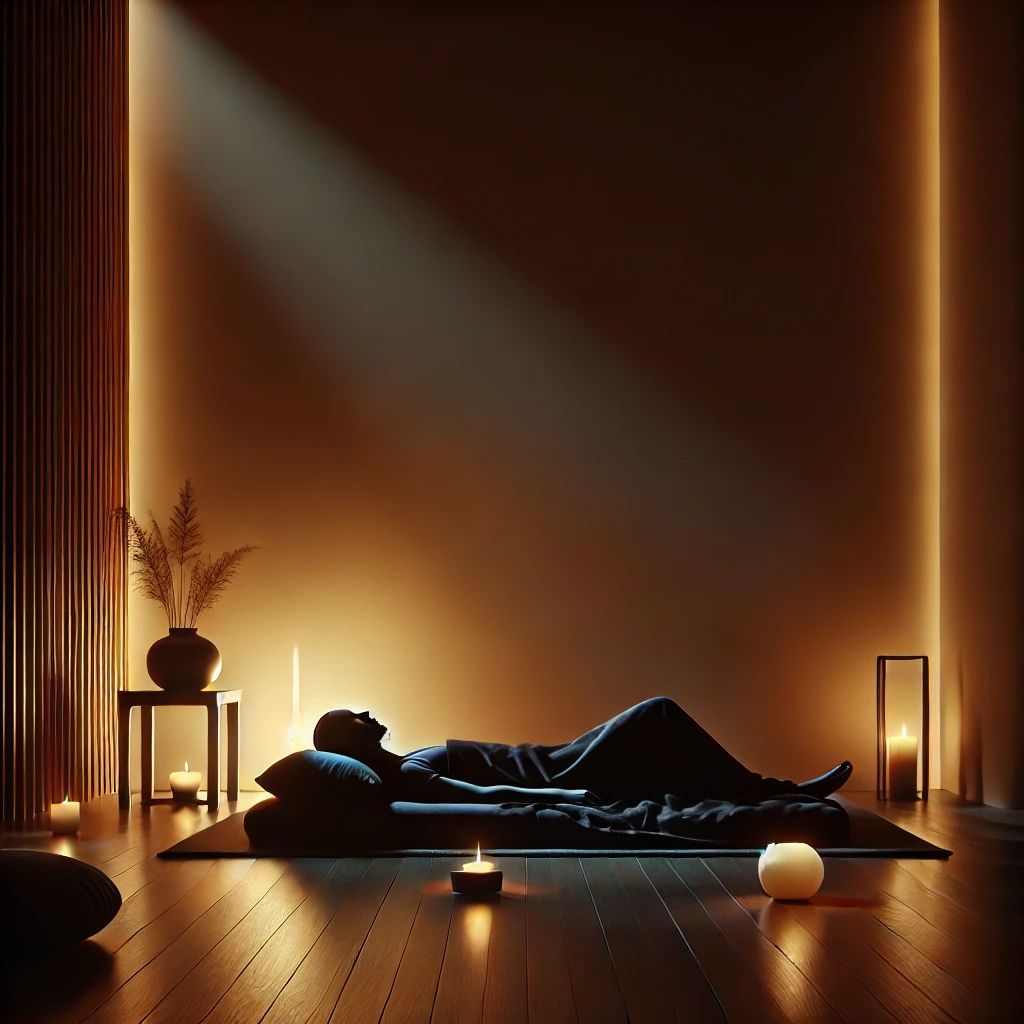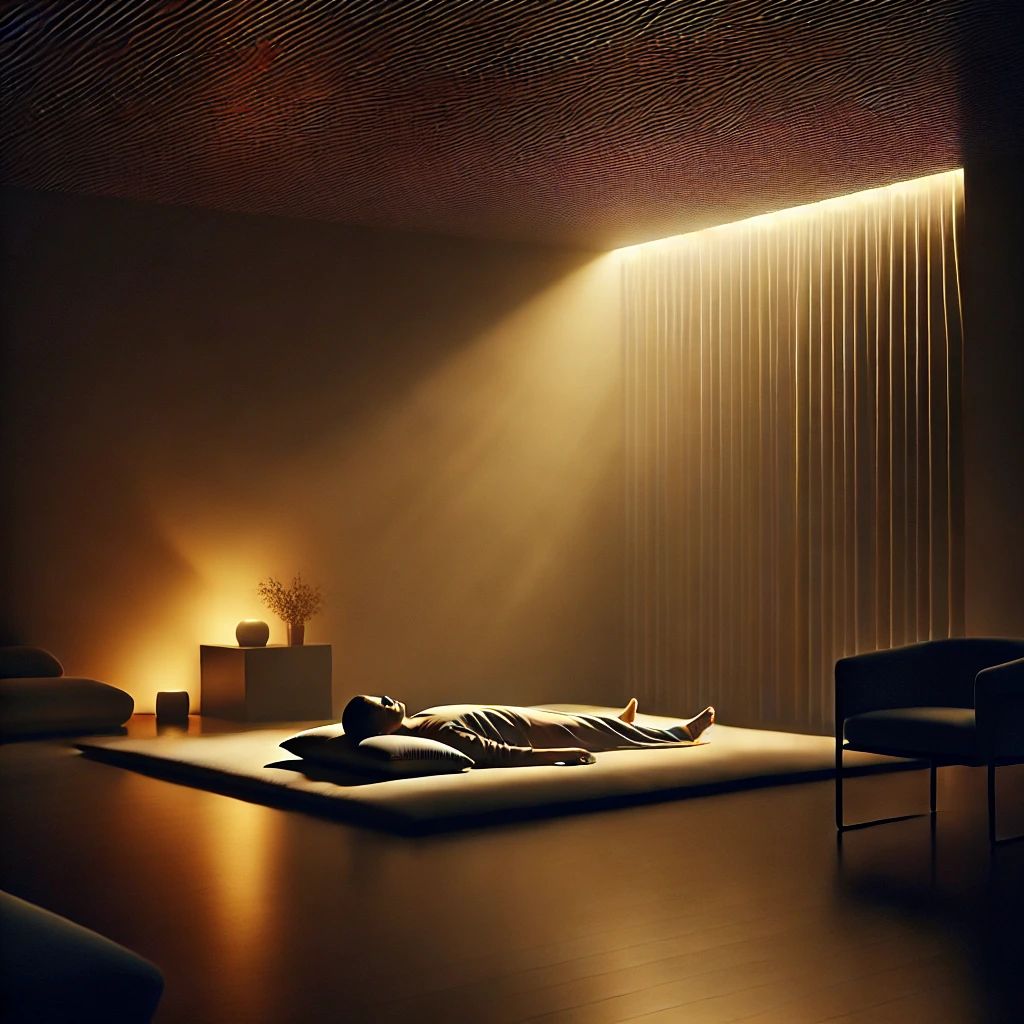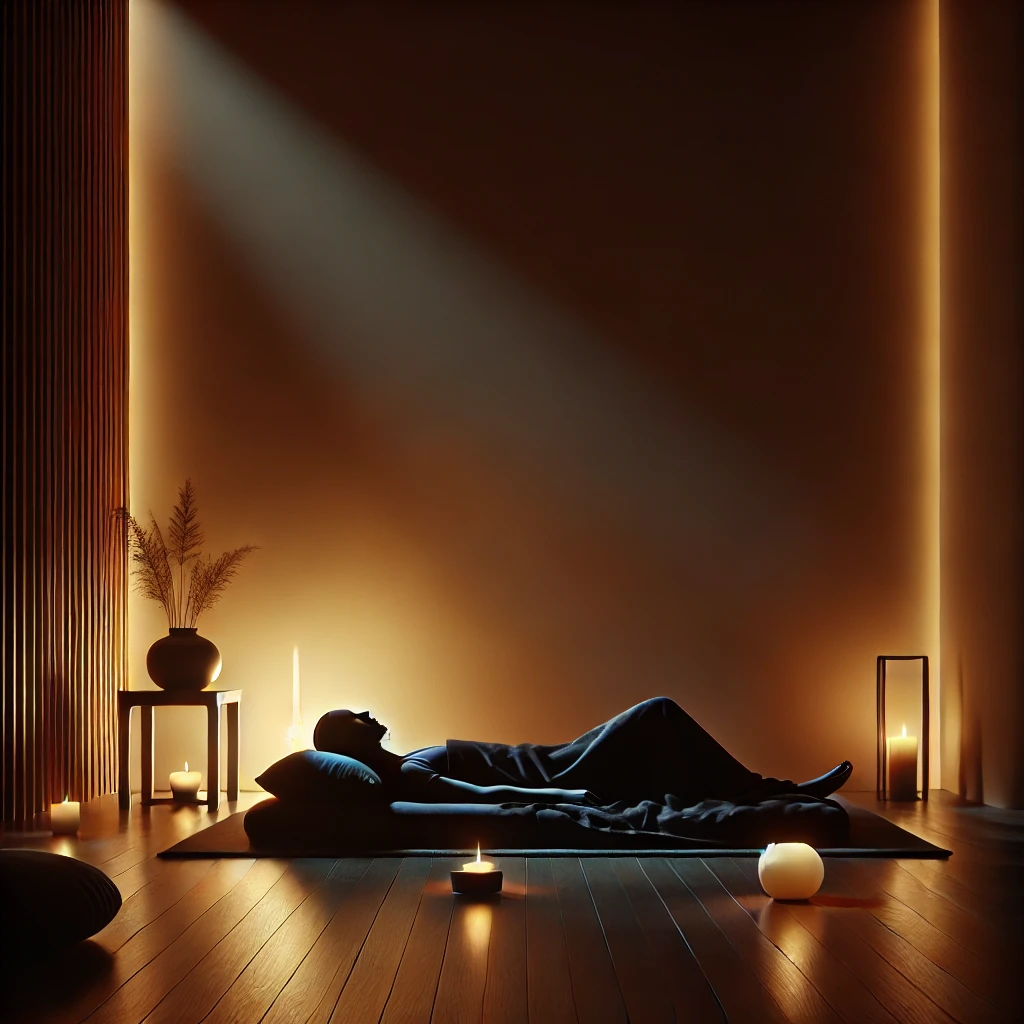In today’s modern world, exposure to artificial light is constant, from screens to streetlights illuminating the night sky. Rare are the moments when we, as humans, are truly in complete darkness, and this can have serious consequences for our health. However, darkness is not just a rest for our eyes but also a critical element in regulating hormonal functions. Embracing darkness as a healer can help restore balance and improve overall well-being. Controlled and increased exposure to natural darkness can have profound benefits for hormonal balance, particularly in terms of melatonin and circadian rhythms. Can we harness the power of darkness for better health?

Melatonin – The Night Guardian of Our Health
Melatonin is a hormone produced by the pineal gland, responsible for regulating the sleep-wake cycle. However, melatonin has a much broader role in the body, affecting the immune system, helping combat inflammation, and acting as an antioxidant. Melatonin production decreases significantly in the presence of light, especially blue light emitted by screens. Controlled exposure to darkness can improve melatonin production, leading to better sleep, a stronger immune system, and a reduced risk of chronic diseases such as diabetes and cardiovascular conditions.
Darkness as a Healer: Darkness and Circadian Rhythms
Our biological clock, known as the circadian rhythm, is directly linked to the cycle of day and night. This rhythm is vital for health as it regulates body functions such as temperature, metabolism, and hormonal levels. Excessive exposure to light, especially at night, disrupts this rhythm, leading to sleep disorders, fatigue, and reduced concentration. Controlled exposure to complete darkness, as practiced in certain Arctic regions where the night lasts more than 24 hours, can help reset circadian rhythms, improving energy levels, focus, and metabolism.
The Effects of Darkness on Cortisol and Stress
Darkness isn’t only connected to melatonin; it also significantly impacts the stress hormone cortisol. Excessive stress leads to elevated cortisol levels, which can cause inflammation, weight gain, and poor immune function. Exposure to natural darkness reduces cortisol production, allowing the body to regenerate and recover. This practice is utilized in some rural communities living in regions with long winter nights, where the population experiences lower stress levels and fewer chronic diseases.

Darkness and Mental Health
Research shows that darkness has the potential to improve mental health by reducing symptoms of anxiety and depression. People who regularly experience long periods of darkness have a greater ability to rest and reflect, enabling them to better cope with emotional challenges. The psychological calm that darkness brings is an important element in emotional recovery processes, while also reducing brain hyperactivity, which is common in people who are constantly exposed to light.
Darkness as a Healer: Implementing Darkness in Everyday Life
Modern life offers limited access to natural darkness, but there are ways to change this. Minimizing screen use before bed, using dimmed rooms, or experiencing short periods of complete darkness can help restore hormonal balance. Practices like meditation in darkness or short breaks in dark rooms are becoming popular for managing stress and improving sleep.
Controlled exposure to darkness is not just a matter of resting our eyes, but an essential factor in regulating our hormones and circadian rhythms. Darkness has the power to reset our biological clock, reduce stress, and improve our mental and physical health. Modern life offers constant light, but embracing darkness and adapting habits positively impacts overall well-being.
You May Also Be Interested In…
Reducing Blue Light Exposure: The Path to Better Mental Health and Quality Sleep
Spending Time in Darkness: Can It Really Improve Vision or Is It Just a Myth?
Intermittent Breathing: The Key to Increased Energy and Reduced Stress
